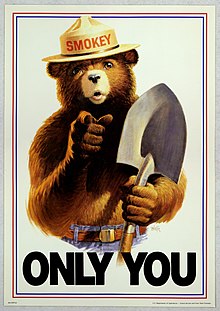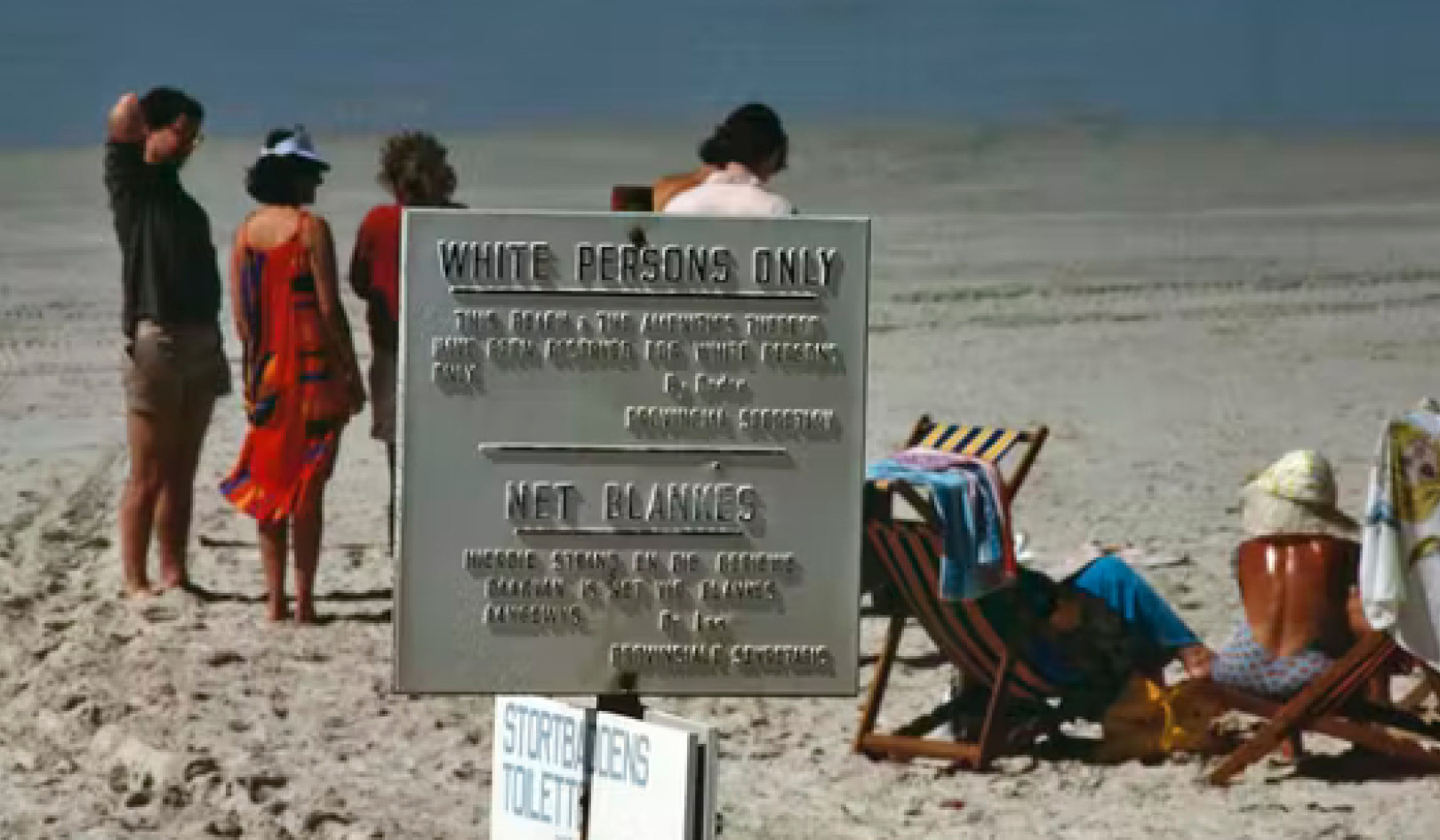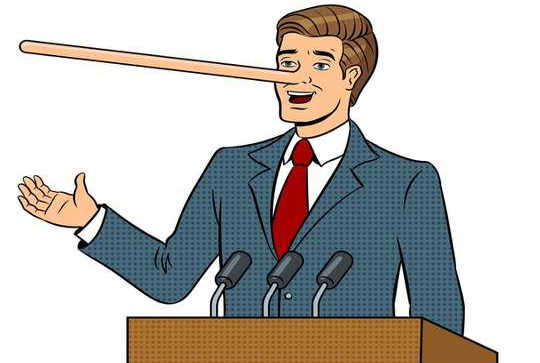
The old joke says you can tell a politician is lying if his lips are moving. Alexander_P/Shutterstock.com
When regular people lie, sometimes their lies are detected, sometimes they’re not. Legally speaking, sometimes they’re protected by the First Amendment – and sometimes not, like when they commit fraud or perjury.
But what about when government officials lie?
I take up this question in my recent book, “The Government’s Speech and the Constitution.” It’s not that surprising that public servants lie – they are human, after all. But when an agency or official backed by the power and resources of the government tells a lie, it sometimes causes harm that only the government can inflict.
My research found that lies by government officials can violate the Constitution in several different ways, especially when those lies deprive people of their rights.
Clear violations
Consider, for instance, police officers who falsely tell a suspect that they have a search warrant, or falsely say that the government will take the suspect’s child away if the suspect doesn’t waive his or her constitutional rights to a lawyer or against self-incrimination. These lies violate constitutional protections provided in the Fourth, Fifth and Sixth Amendments.
If the government jails, taxes or fines people because it disagrees with what they say, it violates the First Amendment. And under some circumstances, the government can silence dissent just as effectively through its lies that encourage employers and other third parties to punish the government’s critics. During the 1950s and 1960s, for example, the Mississippi State Sovereignty Commission spread damaging falsehoods to the employers, friends and neighbors of citizens who spoke out against segregation. As a federal court found decades later, the agency “harassed individuals who assisted organizations promoting desegregation or voter registration. In some instances, the commission would suggest job actions to employers, who would fire the targeted moderate or activist.”
And some lawsuits have accused government officials of misrepresenting how dangerous a person was when putting them on a no-fly list. Some judges have expressed concern about whether the government’s no-fly listing procedures are rigorous enough to justify restricting a person’s freedom to travel.
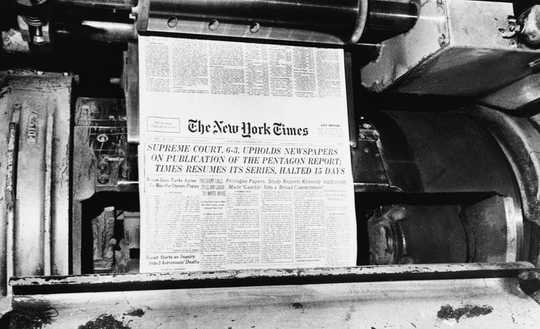 In 1971, The New York Times and The Washington Post published the Pentagon Papers, exposing officials’ lies about the war in Vietnam. AP Photo/Jim Wells
In 1971, The New York Times and The Washington Post published the Pentagon Papers, exposing officials’ lies about the war in Vietnam. AP Photo/Jim Wells
Spreading distrust and uncertainty
But in other situations, it can be difficult to find a direct connection between the government’s speech and the loss of an individual right. Think of government officials’ lies about their own misconduct, or their colleagues’, to avoid political and legal accountability – like the many lies about the Vietnam War by Lyndon Johnson’s administration, as revealed by the Pentagon Papers.
Those sorts of lies are part of what I’ve called “the government’s manufacture of doubt.” These include the government’s falsehoods that seek to distract the public from efforts to discover the truth. For instance, in response to growing concerns about his campaign’s connections to Russia, President Donald Trump claimed that former President Barack Obama had wiretapped him during the campaign, even though the Department of Justice confirmed that no evidence supported that claim.
Decades earlier, in the 1950s, Sen. Joseph McCarthy sought both media attention and political gain through outrageous and often unfounded claims that contributed to a culture of fear in the country.
When public officials speak in these ways, they undermine public trust and frustrate the public’s ability to hold the government accountable for its performance. But they don’t necessarily violate any particular person’s constitutional rights, making lawsuits challenging at best. In other words, just because the government’s lies hurt us does not always mean that they violate the Constitution.
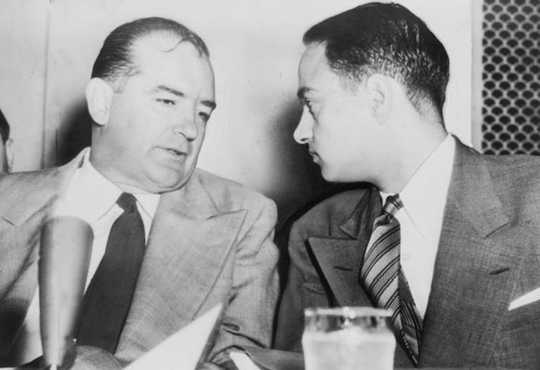 Sen. Joe McCarthy, left, talks with his attorney, Roy Cohn, during Senate hearings in 1954. United Press International/Wikimedia Commons
Sen. Joe McCarthy, left, talks with his attorney, Roy Cohn, during Senate hearings in 1954. United Press International/Wikimedia Commons
What else can people do?
There are other important options for protecting the public from the government’s lies. Whistleblowers can help uncover the government’s falsehoods and other misconduct. Recall FBI Associate Director Mark Felt, Watergate’s “Deep Throat” source for The Washington Post’s investigation, and Army Sgt. Joseph Darby, who revealed the mistreatment of prisoners at Abu Ghraib. And lawmakers can enact, and lawyers can help enforce, laws that protect whistleblowers who expose government lies.
Legislatures and agencies can exercise their oversight powers to hold other government officials accountable for their lies. For example, Senate hearings led Sen. McCarthy’s colleagues to formally condemn his conduct as “contrary to senatorial traditions and … ethics.”
In addition, the press can seek documents and information to check the government’s claims, and the public can protest and vote against those in power who lie. Public outrage over the government’s lies about the war in Vietnam, for example, contributed to Lyndon Johnson’s 1968 decision not to seek reelection. Similarly, the public’s disapproval of government officials’ lies to cover up the Watergate scandal helped lead to Richard Nixon’s 1974 resignation.
It can be hard to prevent government officials from lying, and difficult to hold them accountable when they do. But the tools available for doing just that include not only the Constitution but also persistent pushback from other government officials, the press and the people themselves.
About the Author
Helen Norton, Rothgerber Chair in Constitutional Law, University of Colorado Boulder
This article is republished from The Conversation under a Creative Commons license. Read the original article.
Remember Your Future
on the 3rd of November
Learn about the issues and what's at stake in the November 3, 2020 US Presidential election.
Too soon? Don't bet on it. Forces are conniving to stop you from having a say in your future.
This is the big one and this election may be for ALL the marbles. Turn away at your peril.
Only You Can Prevent 'Future' Theft
Follow InnerSelf.com's
"Remember Your Future" coverage
Related Books
Climate Leviathan: A Political Theory of Our Planetary Future
by Joel Wainwright and Geoff Mann How climate change will affect our political theory—for better and worse. Despite the science and the summits, leading capitalist states have not achieved anything close to an adequate level of carbon mitigation. There is now simply no way to prevent the planet breaching the threshold of two degrees Celsius set by the Intergovernmental Panel on Climate Change. What are the likely political and economic outcomes of this? Where is the overheating world heading? Available On Amazon
How climate change will affect our political theory—for better and worse. Despite the science and the summits, leading capitalist states have not achieved anything close to an adequate level of carbon mitigation. There is now simply no way to prevent the planet breaching the threshold of two degrees Celsius set by the Intergovernmental Panel on Climate Change. What are the likely political and economic outcomes of this? Where is the overheating world heading? Available On Amazon
Upheaval: Turning Points for Nations in Crisis
by Jared Diamond Adding a psychological dimension to the in-depth history, geography, biology, and anthropology that mark all of Diamond's books, Upheaval reveals factors influencing how both whole nations and individual people can respond to big challenges. The result is a book epic in scope, but also his most personal book yet. Available On Amazon
Adding a psychological dimension to the in-depth history, geography, biology, and anthropology that mark all of Diamond's books, Upheaval reveals factors influencing how both whole nations and individual people can respond to big challenges. The result is a book epic in scope, but also his most personal book yet. Available On Amazon
Global Commons, Domestic Decisions: The Comparative Politics of Climate Change
by Kathryn Harrison et al Comparative case studies and analyses of the influence of domestic politics on countries' climate change policies and Kyoto ratification decisions. Climate change represents a “tragedy of the commons” on a global scale, requiring the cooperation of nations that do not necessarily put the Earth's well-being above their own national interests. And yet international efforts to address global warming have met with some success; the Kyoto Protocol, in which industrialized countries committed to reducing their collective emissions, took effect in 2005 (although without the participation of the United States). Available On Amazon
Comparative case studies and analyses of the influence of domestic politics on countries' climate change policies and Kyoto ratification decisions. Climate change represents a “tragedy of the commons” on a global scale, requiring the cooperation of nations that do not necessarily put the Earth's well-being above their own national interests. And yet international efforts to address global warming have met with some success; the Kyoto Protocol, in which industrialized countries committed to reducing their collective emissions, took effect in 2005 (although without the participation of the United States). Available On Amazon
From The Publisher:
Purchases on Amazon go to defray the cost of bringing you InnerSelf.comelf.com, MightyNatural.com, and ClimateImpactNews.com at no cost and without advertisers that track your browsing habits. Even if you click on a link but don't buy these selected products, anything else you buy in that same visit on Amazon pays us a small commission. There is no additional cost to you, so please contribute to the effort. You can also use this link to use to Amazon at any time so you can help support our efforts.



